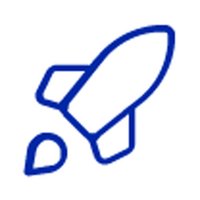
Human Resources and Infrastructure
As an on-site university, UZH fosters a lively culture of in-person exchange. At the same time, UZH also provides freedom for individuals to pursue flexible working arrangements.
The development of the university’s working culture relies on a foundation that also holds up in difficult times. Despite the challenges of the pandemic years, workplace satisfaction is high at UZH, according to a survey from May 2022. Employees indicated that they felt motivated and that they were respected, appreciated and trusted in their teams. Aspects such as equal opportunities and diversity also received good marks.
New working model
UZH is developing its working conditions and culture to ensure that it remains an attractive modern employer in the future. Digital transformation is changing the world of work, and many jobs can be done from any location. UZH is putting this transformation on a gradual and sustainable path while maintaining its identity as an on-site university with a vibrant campus life. In 2022, UZH introduced a new working model that expands options for individual and mobile working arrangements while also emphasizing the importance of in-person collaboration. These aspects need to be fostered and developed.
Shared learning process
Developing the working culture at UZH is a learning process for everyone involved. It is evidence-based and requires a high degree of autonomy, ownership and strong leadership. UZH supports this process by empowering its employees. Over the past few years, UZH has gradually expanded its leadership training opportunities. This strategy continued in 2022 with the founding of the Leadership and Governance Academy and a pilot project on the future of work.
Development of sites and real-estate
In developing the UZH campuses, buildings and sites, the goal is to create research and teaching environments that are optimally tailored to the needs of various disciplines. New models for flexible use of space are being tested out step-by-step. There are ongoing pilot projects in the lab building of the Functional Genomics Center Zurich, which opened in 2022, in the new building UZI 5 on Irchel Campus, and in the newly leased premises at Westpark. The planned FORUM UZH demonstrates UZH’s conception of the university as a physical place of learning where interaction and exchange are fostered.

Teamwork at the Devision of Dental Biomaterials at the Center of Dental Medicine. “Team members are made up of different personalities with varying expectations and working styles. A hybrid way of working that takes all these aspects into account without sacrificing from quality and efficiency of work, requires much experience and flexibility from line managers,” says Professor Mutlu Özcan.

In May 2022, UZH introduced a new working model under the name “Mobile Working”, which is geared towards the needs of an on-site university and simultaneously makes use of possibilities for the flexible organization of work. The model requires that employees usually work at least 60 percent of the time on site at UZH. It also permits mobile working as long as the operational needs and duties of the employee allow for it. Anyone who wishes to work exclusively on site is naturally welcome to do so. Managers at UZH are responsible for striking the right balance between in-person and mobile work in their teams and receive support from the HR department in doing so.
Exchange and networking
UZH views itself as a closely networked research and teaching community that fosters lively in-person interaction. The limitations imposed during the pandemic demonstrated that having in-person opportunities for social contact and networking are important for students. This also applies to staff: working on site is important for identifying with your work, for social embeddedness and for the ability of supervisors assess your work appropriately. In terms of team cohesion, it is also critical for co-workers to be on site together.
But mobile working also offers benefits: when used as a supplement to on-site working, it allows for certain tasks to be completed more productively and for the working day to be structured more easily.
Positive resonance
The new working model has been well received by employees, as demonstrated in a special survey conducted in the summer of 2022. Employees welcome the more flexible rules and also appreciate the benefits of in-person working. According to the survey results, employees expect the model to increase the attractiveness of UZH as an employer and to boost productivity and job satisfaction.

The working culture situation is different in each academic discipline. That’s why a pilot project was launched in 2022 in which professors from all faculties collect, share and try out ideas for combining a vibrant campus culture with digital technologies and mobile ways of working. The project is being led by the UZH Center for Leadership in the Future of Work and allows professors and their teams to experiment with best practices for future-oriented ways of working. The results of the pilot project are intended to create momentum for change throughout the university.

UZH can count on its staff and students to have a high degree of independence and self-reliance. The quality of management and leadership at all levels must be correspondingly high. Over the past several years, UZH has undertaken efforts to professionalize its leadership and governance with a view to the long term. These measures have been taken with the aim of future-proofing the autonomy of the university and have, in many ways, been trailblazing. As part of the Governance 2020+ and Strengthening Leadership at UZH programs, management responsibilities have been reassigned and placed on a broader footing. At the same time, measures have been taken to support all levels of management staff with their diverse duties, with particular emphasis on professors. A series of events and continuing education courses have been launched to this end, including the CAS in University Leadership and Governance, the UZH Leadership Development Program, the UZH Leadership Dialogue, and the Onboarding Day.
Under one roof
The UZH Leadership and Governance Academy was established in late 2022 to combine all of these support measures under one roof. The mission of the academy is to coordinate leadership courses and activities (and avoid duplications), to recognize unmet demand, to encourage innovation, and to create a network among stakeholders – all with the aim of developing a shared understanding of what it means to be a leader at UZH. A new leadership program for professors aims to satisfy an identified unmet demand and will be offered for the first time in 2023.
The Leadership and Governance Academy is part of the Center for Higher Education and Science Studies (CHESS), which conducts research on university development and provides consulting in this field. CHESS provides an optimal environment for combining continuing education, advising and research in the field of leadership and governance.
By aiming to empower and equip staff, the academy represents a long-term investment in UZH’s future excellence.

“I greatly appreciate the flexibility introduced by the new guidelines on mobile working. But it has also created new challenges for line managers and for team cohesion. I’m convinced that we will grow from our experiences and find the right way to deal with the situation – to everyone’s benefit.”
Co-President of the Association of Administrative and Technical Staff (V-ATP)

“Good leadership is essential if you want teams that are motivated and work well together. Promoting leadership and management skills is therefore an effective lever for strengthening the overall development of UZH.”
Professor Emeritus of Psychology and head of the newly founded UZH Leadership and Governance Academy

“Fair and equal chances for everyone at UZH are essential. The results of the employee survey show that UZH is on the right track when it comes to equal opportunities and diversity. We need to continue to advance the implementation of the Diversity Policy and the Gender Policy Code of Conduct so that we can meet the needs of our students and employees.”
Head of the Office for Gender Equality and Diversity

“Our employees’ strong commitment to UZH is an asset that we need to nurture; it’s not something we take for granted. Inspiring work tasks, efficient and positive leadership and empowering working models and spaces are UZH’s indispensable contributions as an employer to justify this commitment. We’re on the right path by expanding these contributions, but we will continue to observe, listen and invest.”
Leader HR Department